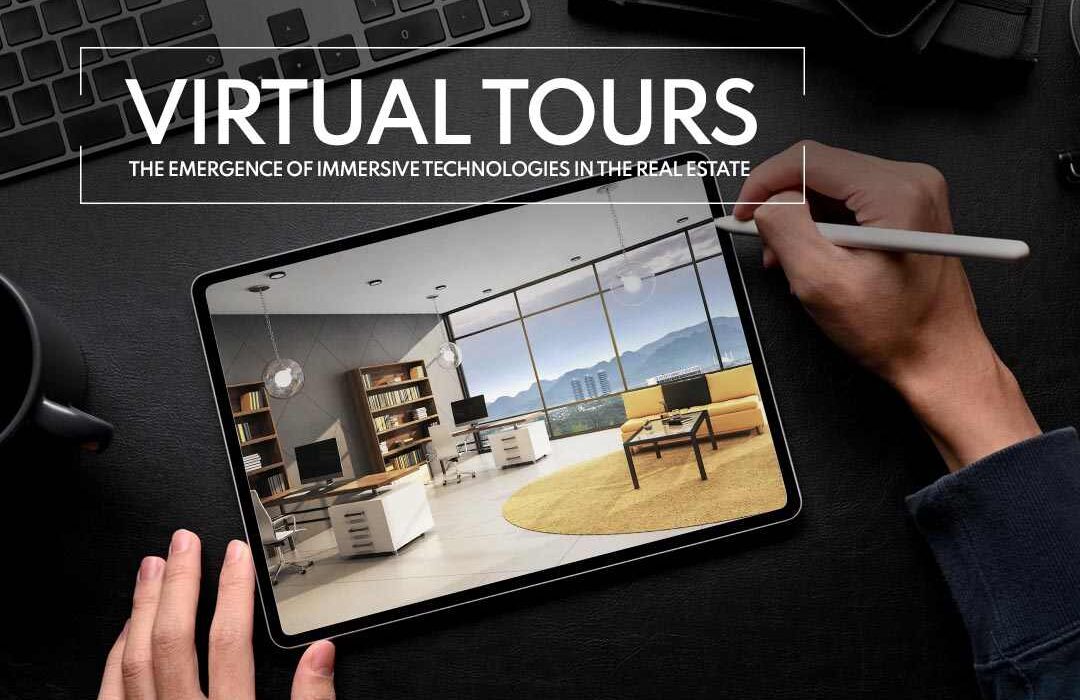In today’s fast-paced digital age, technology has revolutionized various industries, and real estate is no exception. One notable real estate technology that has transformed the way properties are showcased and experienced is the advent of virtual tours.
With the rise of immersive technologies, real estate professionals can now offer prospective buyers the opportunity to explore properties from the comfort of their homes, therefore transcending the limitations of traditional property viewings.
In this blog post, we dive into the fascinating realm of real estate in Pakistan, understanding how technologies, like virtual tours and others, have transformed the real estate landscape while opening up new horizons for both buyers and sellers.
Virtual Tours… a Game-Changing Real Estate Technology
The real estate industry has witnessed significant advancements in technology in recent years. These technologies are transforming the way properties are bought, sold, managed, and experienced.
One of the emerging ones is virtual tours; here are the reasons why this real estate technology is changing the dynamics of the industry and how stakeholders are being connected.
Enhancing Property Showcasing
Traditional methods of showcasing properties, such as static images and floor plans, have limitations in terms of providing a comprehensive understanding of a property’s layout, ambiance, and scale.
Virtual tours, on the other hand, offer an interactive and immersive experience that bridges this gap. Through high-definition images, 360-degree views, and other related real estate technologies, potential buyers can virtually walk through properties, examine rooms, and visualize themselves in the space.
This enhanced visualization capability has proven to be a game-changer in the industry, allowing buyers to get a realistic feel for the property without physically being there.
Virtual tours provide a dynamic and engaging way to showcase properties, allowing viewers to navigate through the space at their own pace. They can zoom in on specific features, examine details, and get a sense of the flow and layout of the property.
This level of interactivity not only helps buyers make more informed decisions but also creates a memorable and immersive experience that sets properties apart from the competition.
Expanding Reach and Saving Time
Virtual tours have significantly expanded the reach of real estate listings. Prospective buyers can explore properties located in different cities or even countries without the need for physical visits. This opens up new possibilities for international buyers, busy professionals, or those unable to travel.
With just a few clicks, potential buyers can access a virtual tour and experience the property as if they were physically present.
Moreover, virtual tours save time for both buyers and sellers. Instead of scheduling multiple property visits, buyers can pre-screen properties online and focus their attention on the most promising options. This streamlines the buying process and allows buyers to narrow down their choices before committing to in-person visits.
Similarly, sellers benefit from virtual tours by attracting serious and genuinely interested buyers, reducing the number of casual inquiries and unnecessary showings. By leveraging virtual tours, the real estate industry is transforming the way properties are discovered and evaluated, making the process more efficient for all parties involved.
Building Trust and Transparency
Real estate transactions involve substantial financial investments, making trust and transparency crucial factors. Virtual tours provide a transparent view of the property, leaving no room for surprises or misrepresentations.
By offering an authentic and immersive experience, real estate professionals can build trust with potential buyers and establish credibility in the market.
Buyers can explore every nook and cranny of a property, getting a realistic sense of its condition, layout, and features. Virtual tours showcase the property “as is,” providing an accurate representation of its current state.
This level of transparency helps buyers make more informed decisions and reduces the chances of dissatisfaction or misunderstandings during the later stages of the buying process.
Showcasing Off-Plan Properties
Virtual tours have proven to be particularly valuable for all types of properties, especially off-plan ones. These properties, which are still under construction or in the pre-launch phase, may lack physical show homes.
However, with virtual tours, real estate developers can showcase the future potential of the property, allowing buyers to visualize the final product.
Virtual tours offer a glimpse into the developer’s vision, showcasing the layout, finishes, and overall feel of the property once completed.
Other Real Estate Technologies in Pakistan
Other than virtual tours, real estate in Pakistan is greatly influenced by other technologies, too.
Here are some of the latest real estate technologies making an impact in the sector:
- Artificial Intelligence (AI) and Machine Learning: AI-powered algorithms and machine learning techniques are being utilized to analyze vast amounts of real estate data. This helps in predicting market trends, property valuations, and investment opportunities. AI is also being employed in virtual assistants and chatbots to enhance customer service and streamline property search processes.
- VR and AR: Both VR & AR technologies are revolutionizing property visualization. Virtual reality allows potential buyers to experience properties through immersive 3D tours, while augmented reality enables buyers to overlay digital information, such as property details. These technologies provide a realistic and interactive experience, enabling buyers to make more informed decisions.
- Big Data Analytics: The real estate industry generates vast amounts of data, ranging from property information to market trends. Big data analytics tools enable real estate professionals to extract valuable insights from this data, helping in property valuation, market analysis, and risk assessment. These insights aid in informed decision-making and strategy formulation.
- Drones: Drones are being used for aerial photography and videography, allowing real estate professionals to capture stunning visuals of properties and their surroundings. Even in Pakistan, real estate photography has already started leveraging drones – to provide a unique perspective and highlight property features, landscapes, and amenities. At our site of the latest commercial project, Citadel 7, we have been using drones to cover large-scale developments and inaccessible areas.
- Property Management Software: Property management software simplifies the management of rental properties, automating tasks such as tenant screening, rent collection, maintenance tracking, and financial reporting. Such platforms enhance efficiency, organization, and communication for property owners and managers.
Conclusion
These real estate innovations are continually evolving, with ongoing research and development driving further innovations in the industry.
The emergence of virtual tours has brought a remarkable transformation to the real estate industry. Through immersive and interactive experiences, prospective buyers can explore properties remotely, expanding their options and saving valuable time.
The transparency and trust virtual tours provide contribute to more informed decision-making, benefiting both buyers and sellers. As technology continues to evolve, we can expect virtual tours to become even more advanced, further revolutionizing the real estate market.
Remember to personalize the content and add any additional insights or information you feel are relevant.
Embracing these advancements can help real estate builders and investors stay competitive, enhance customer experiences, and optimize business operations.

